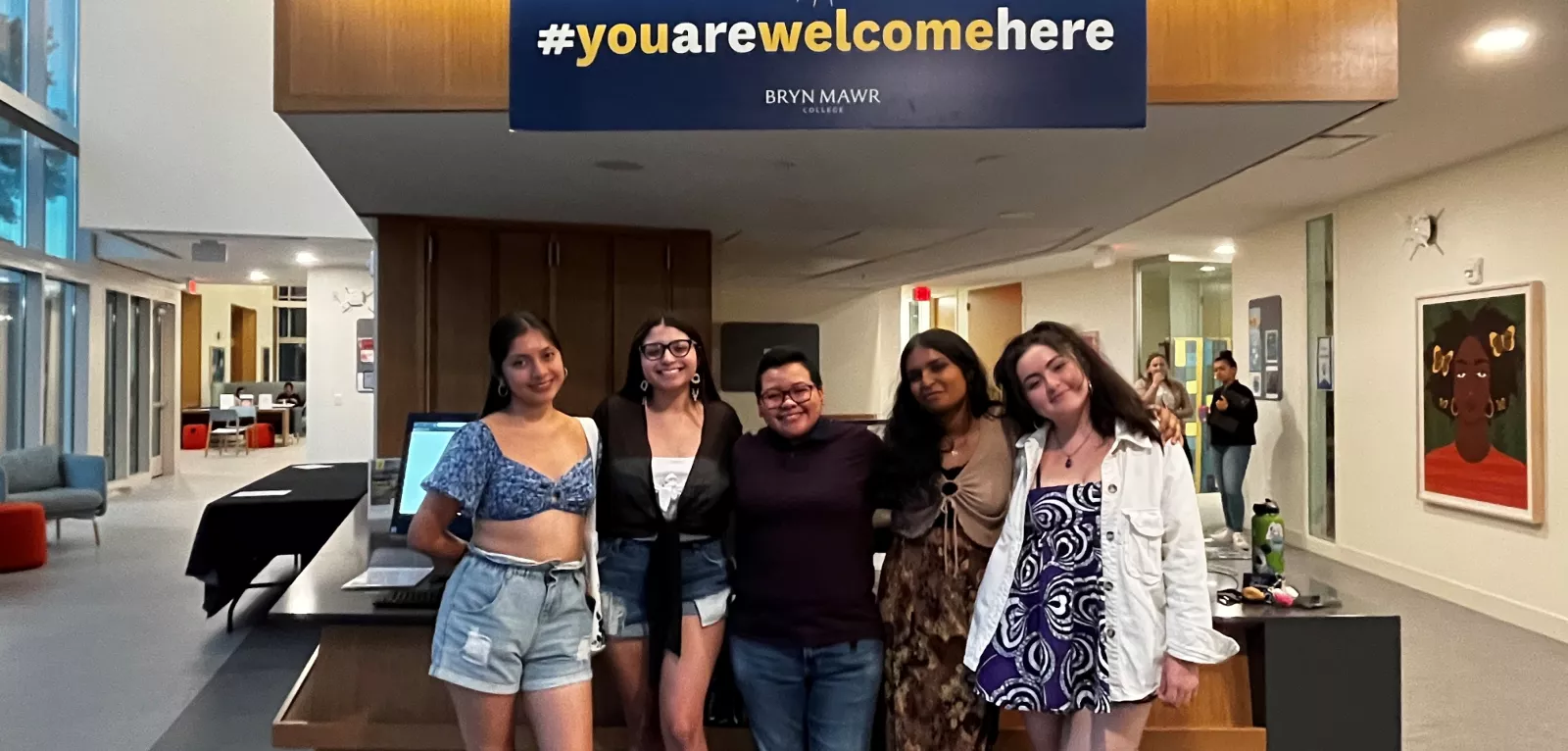
FGLI Friendlies
Find faculty, staff & students who identify as FGLI and/or are interested in mentoring and supporting FGLI students at Bryn Mawr.
Faculty & Staff Network
Primary Contacts
Trish Whitfield, twhitfield@brynmawr.edu
Associate Director of Student Support and Belonging
A.T. Ortíz, aortiz3@brynmawr.edu
Dean for Equity, Inclusion & Community Life, The Impact Center for Community, Equity, and Understanding
Secondary Contact
Catherine Taipe, ctaipe@brynmawr.edu
Program Assistant, Inclusion & Community Life, The Impact Center for Community, Equity, and Understanding
Admissions
Melanie Bethea, mbethea01@brynmawr.edu
Alumnae/i Relations and Development
Lisa Camma, lcamma@brynmawr.edu
Fran Thack, fthack@brynmawr.edu
Anthropology
Casey Barrier, cbarrier@brynmawr.edu
Susanna Fioratta, sfioratta@brynmawr.edu
Arts
Linda Caruso Haviland, lcarusoh@brynmawr.edu
Mark Lord, mlord@brynmawr.edu
Athletics
Doanh Wang, dwang2@brynmawr.edu
Career & Civic Engagement Center
Katie Krimmel, kkrimmel@brynmawr.edu
Dayna Levy, dlevy1@brynmawr.edu
Ellie Esmond, eesmond@brynmawr.edu
Chemistry
Olga Karagiaridi, okaragiaridi@brynmawr.edu
Communications
Amanda Coltri, acoltri1@brynmawr.edu
Matt Gray, mgray@brynmawr.edu
Controller’s Office
Amy Berry, amberry@brynmawr.edu
Dining Services
Shana Fountain, sfountai@brynmawr.edu
English
Kate Thomas, kthomas@brynmawr.edu
Enrollment
Cheryl Horsey, chorsey@brynmawr.edu
Financial Aid
Emilie Leather, eleather@brynmawr.edu
Growth and Structure of Cities
Lauren Restrepo, lrestrepo@brynmawr.edu
GSSWSR
Darlyne Bailey, dbailey01@brynmawr.edu
Carolina Hausmann-Stabile, chousmanns@brynmawr.edu
Health Center
Reggie Jones, rjones@brynmawr.edu
Impact Center
Joi Dallas, jshawdalla@brynmawr.edu
Patti Lausch, plausch@brynmawr.edu
Library & Information Technology Services (LITS)
Ann Marie Gallagher, amgallaghe@brynmawr.edu
Mathematics
Daisy Sudparid, dsuparid@brynmawr.edu
Psychology
Anjali Thapar, athapar@brynmawr.edu
Religious & Spiritual Life
Rabbi Nora Woods, nwoods@brynmawr.edu
Russian and Sponsored Research
Billie Jo Ember, bember@brynmawr.edu
Sociology
Veronica Montes, vmontes@brynmawr.edu
STEMLA Program
Kelsey Obringer, kobringer@brynmawr.edu
Undergraduate Dean’s Office
Rachel Heiser, rheiser@brynmawr.edu
Tonja Nixon, tnixon@brynmawr.edu